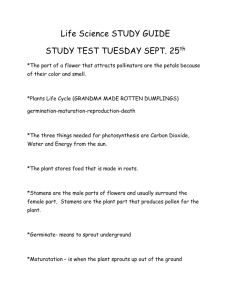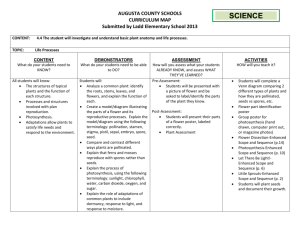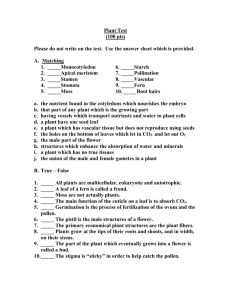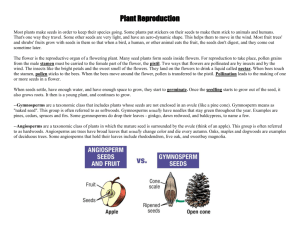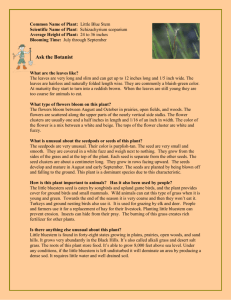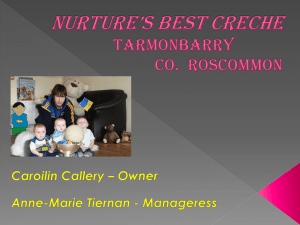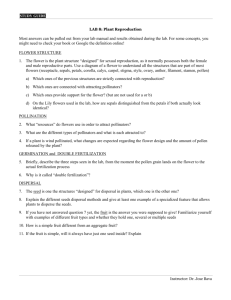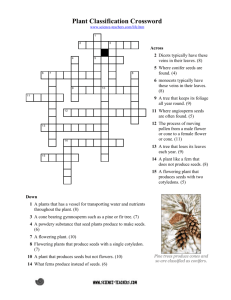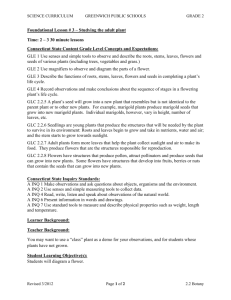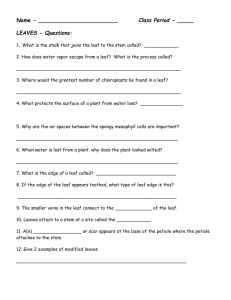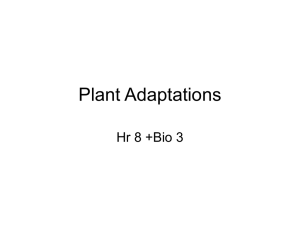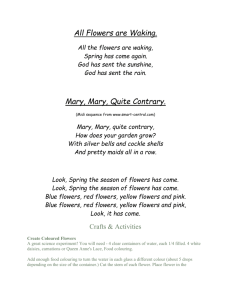20. Prairie Cordgrass
advertisement
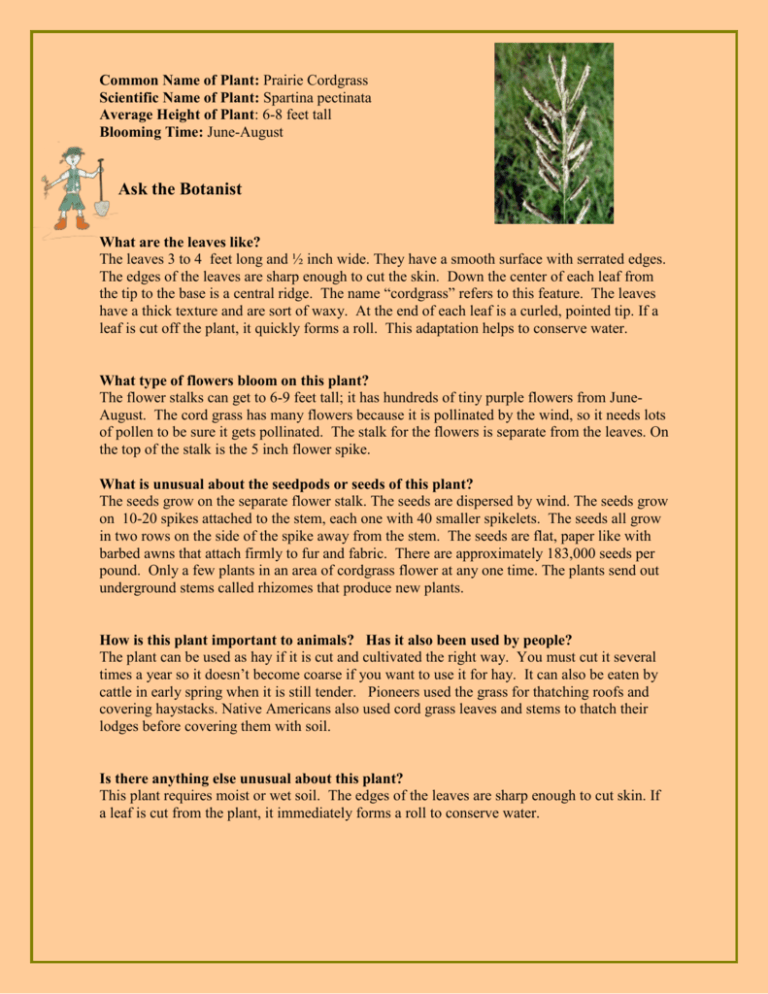
Common Name of Plant: Prairie Cordgrass Scientific Name of Plant: Spartina pectinata Average Height of Plant: 6-8 feet tall Blooming Time: June-August Ask the Botanist What are the leaves like? The leaves 3 to 4 feet long and ½ inch wide. They have a smooth surface with serrated edges. The edges of the leaves are sharp enough to cut the skin. Down the center of each leaf from the tip to the base is a central ridge. The name “cordgrass” refers to this feature. The leaves have a thick texture and are sort of waxy. At the end of each leaf is a curled, pointed tip. If a leaf is cut off the plant, it quickly forms a roll. This adaptation helps to conserve water. What type of flowers bloom on this plant? The flower stalks can get to 6-9 feet tall; it has hundreds of tiny purple flowers from JuneAugust. The cord grass has many flowers because it is pollinated by the wind, so it needs lots of pollen to be sure it gets pollinated. The stalk for the flowers is separate from the leaves. On the top of the stalk is the 5 inch flower spike. What is unusual about the seedpods or seeds of this plant? The seeds grow on the separate flower stalk. The seeds are dispersed by wind. The seeds grow on 10-20 spikes attached to the stem, each one with 40 smaller spikelets. The seeds all grow in two rows on the side of the spike away from the stem. The seeds are flat, paper like with barbed awns that attach firmly to fur and fabric. There are approximately 183,000 seeds per pound. Only a few plants in an area of cordgrass flower at any one time. The plants send out underground stems called rhizomes that produce new plants. How is this plant important to animals? Has it also been used by people? The plant can be used as hay if it is cut and cultivated the right way. You must cut it several times a year so it doesn’t become coarse if you want to use it for hay. It can also be eaten by cattle in early spring when it is still tender. Pioneers used the grass for thatching roofs and covering haystacks. Native Americans also used cord grass leaves and stems to thatch their lodges before covering them with soil. Is there anything else unusual about this plant? This plant requires moist or wet soil. The edges of the leaves are sharp enough to cut skin. If a leaf is cut from the plant, it immediately forms a roll to conserve water. Pictures Whole Plant Leaf http://www.illinoiswildflowers.info/grass es/plants/pr_cordgrass.htm http://www.eeob.iastate.edu/research/iowagrasses/ speciespages/SpartPecti/SparPecti.html Flower http://www.lib.ksu.edu/wildflower/prairiecordgras s.html Bud http://www.npwrc.usgs.gov/resource/pla nts/floramw/species/sparpect.htm
